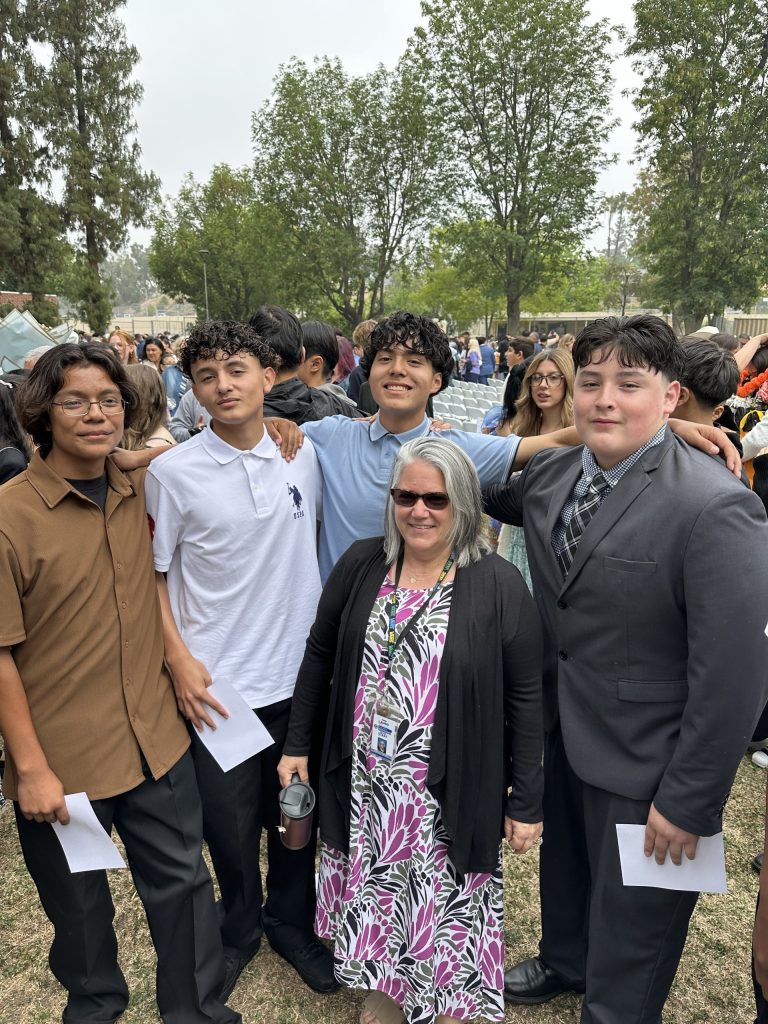
Practical advice from educators and experienced parents to help you and your child thrive during the middle school years.
As a middle-school parent three times over, I saw my children go from chatty sharers to communication firewalls. I went from confidently coaching my kids in math to thinking algebra came from Mars. Awkward, socially clueless and running to catch up often described me more than my kids.
Luckily, I managed to be fairly useful to my middle schoolers. Following are things I gathered to help you and your child navigate the “Middle Earth” of schooling.
About That Village
In the early school years, I talked with a lot of people. Fellow parents shared excitement about the newness of everything. My wife and I reviewed and previewed the events of our kids’ lives. I consulted with teachers, who seemed to have loads of time to offer observations.
In middle school, classes got much bigger and the space between me as a parent and other people widened. It was harder to connect with fellow parents, and teachers were busier with running classrooms than with chitchatting. Yet, the effort needed to be made, with an emphasis on quality rather than quantity.
As adolescence kicks in, the questions for parenting multiply and parental self-doubt creeps in, so it’s essential to know the struggle need not be braved alone. Access your village of support and talk with close friends and family members who’ve had experience getting through the middle school years. With teachers and administrators, interaction is available, but tends to be less frequent and more formal.
Breathe, Just Breathe
Equally valuable in this new phase is to take a breath, then balance information and worries. As much as we might feel kind of useless now that our kids are pimply and stand-offish, we have to shift with the changes.
Michelle Yamasaki, a middle-school teacher and administrator heading into her 30th year in education, advises parents to “not jump to solve things for their kids. These are years of uncomfortable feelings and students need to learn how to get through.”
“Let your child contact the teacher with concerns,” Yamasaki says. “If there is a D or F, that’s the right time for a parent to reach out to the school.”

Yamasaki, currently a math coach at Oliver Wendell Holmes Middle School in Northridge, continues, “As a helicopter parent myself, I recommend logging into the school’s learning management system to peek at your student’s progress.” While over-involved parents could get obsessive and, at worst, use the inside information as a “gotcha” to catch their child doing something wrong, the balanced parent can use it as supportive detail.
“I bit my tongue,” Yamasaki recalls about checking on grades and attendance. “I only looked for zeroes for not turning in work. I didn’t care about Bs. I only cared about 100% effort. I realized I couldn’t make my son be the best. He needed to find his own motivation.”
Oh Yeah, Talk to Your Kid
Ask specific questions about whom your kids hung out with at lunch and what funny thing their teacher said in class. Acknowledging that middle-schoolers can lean toward crankiness, ask them what was difficult or hard about their day.
Once they get yammering, listen and reflect back what they said. The more you listen, the more they will come to you when they really need it. And, again, know that their challenges are part of the process.

Middle school is a training ground that, in reality, allows students to make mistakes and find their way to what works for them. Yamasaki reasons, “They can screw up everything in middle school. Then they get a whole new chance in 9th grade.”
Social Roller-Coaster
Even if certain social struggles seem minor to us, they’re big to them. In fact, their contemporaries are more influential than us, at this point. So it’s wise to validate the challenges.
“Middle school is a time when a young person finds themselves,” Yamasaki says. “It’s uncomfortable for them. They may try out the tough-kid group, the popular bunch, the athletes. There are big friendship breakups. Friends from kindergarten sometimes fall away from each other. There is mean-kid stuff.”
You cannot be an intimate part of these situations, she says. “You can help them self-advocate, “Yamasaki counsels. “But you can’t fix it for them.” As a parent, your job is to hear them out and support them through their trials of working through it.
Commenting on the volatility of adolescence, Yamasaki says, “Don’t be afraid to be hated. They will not love you the whole way through.” As tough as this is, and it certainly was for me, it’s essential to rely on your support system to manage your own feelings while you stay focused on letting your kids stand or fall on their own.
A Couple of Academic Pointers
While keeping in mind that middle school involves trial and error, for your child as well as you, Yamasaki has concrete suggestions for setting up your kid for as much academic success as possible.
“Being a math coach, I recommend parents know the pathways that begin in 6th or 7th grade,” she explains. “Know where the first-year math class leads. You want to find the pathway that fits your student, whether that is accelerated or not.”
Math as well as other subject levels can impact a student’s feelings, Yamasaki continues. “Depression and poor grades can result from kids trying to do their best, but not being the best at something. Take the pressure off them if the placement is too hard. There are ways to get ahead later, if that is what works for them.” Everything manages to fall in place, she notes, so be mindful of the right placement for your child.
Her second major recommendation regards verbal proficiency. “Get them hooked on reading,” Yamasaki says. “I was a terrible, slow reader. With my son, I took him to the best bookstore and had him pick out books on his favorite subjects. Reading fluency cuts down on the time it takes to read for middle-school classes, even with math word problems.”
As always, these insights are just a starting point. Hopefully, though, they orient you and your child toward what will be an exciting, complicated and ultimately huge growth period.
Gregory Keer is a husband to one, father to three, high school educator, and veteran writer. Find his columns and more at familyman.blog.







































